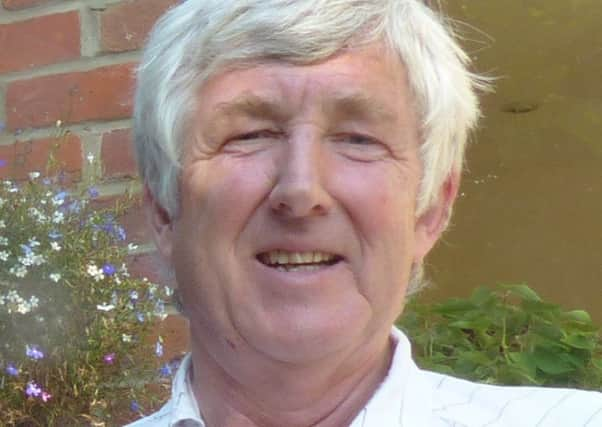Obituary: Hugh Prysor-Jones, journalist and broadcaster


Hugh Prysor-Jones’s voice was known to millions around the world and to night-owl news addicts in the UK as presenter of the BBC World Service 24 Hours rolling news programme in the late 1970s and then again, anchoring its successor, Newshour, during the turbulent 1990s.
On the BBC domestic services Hugh was a reporter on the radio current affairs strands, File on 4 and Analysis, as well as contributing to Panorama and Newsnight and presenting a host of one-off radio series and single programmes during the 1980s and 90s.
Advertisement
Hide AdAdvertisement
Hide AdI first met Hugh when we were paired as a reporter/producer team on the BBC Radio 4 current affairs strand, File on 4, in 1986. He was a remarkable colleague: witty, frighteningly intelligent, endlessly energetic and generous with his time and comradeship.
As a reporter he was completely comfortable behind the microphone, whether in the studio or on the road. As a journalist, he understood strategy and when interviewing the powerful he could guide the audience through many practised smokescreens intended to hide their plans, ambitions and deceptions.
Hugh was born on 18 January, 1949 in Liverpool, the first child of David and Ann Prysor-Jones, both doctors.
From Bishops Court Prep School in Formby he won a scholarship to Downside Catholic school in Somerset. From there he secured a scholarship to Merton College, Oxford, where he achieved a first in history. He took a postgraduate BPhil in African politics then spent two years, 1972-74, in the USA as a Harkness Fellow developing his interest in political science and African studies.
Hugh joined the staff of West Africa magazine in the mid-1970s and from there was recruited to the Africa Service of the BBC. When the concept of rolling news emerged with the opportunities created by new communications technology Hugh was one of the three presenters recruited to anchor the World Service’s 24 Hours in 1978. It was a perfect fit for his talents and his passionate interest in international affairs.
On duty during the Falkland conflict in 1982 he spotted that a “positive news” Ministry of Defence briefing circulated to some journalists inadvertently gave away some information that could have been of use to the Argentine air force. He made an urgent call to the MoD. While never acknowledged, the story was withdrawn, arguably saving lives and naval vessels from effective Argentine air offence.
Hugh could have been an accomplished academic but was drawn to journalism. He couldn’t resist taking a stick and stirring things up. He had an encyclopaedic knowledge of world affairs and a knack for spotting stories and issues when they were still on the far horizon.
David Levy, now director of the Reuters Institute for the Study of Journalism at Oxford University, recalls from his time as editor of Analysis in the early 1990s commissioning Hugh and producer, Simon Coates to investigate the new phenomenon of banking and derivatives. “Hugh grasped the significance and exposed the risks within these innovative financial instruments more than a decade before they shook the entire Western financial system. It was real pathfinding journalism.”
Advertisement
Hide AdAdvertisement
Hide AdI made several Radio 4 series with Hugh in the 1980s and 90s both within the BBC in London and, after my return to Scotland, as independent productions. He loved testing and challenging the prevailing narrative on current issues.
All of this extraordinary professional activity might be enough for most people but Hugh was also carrying on the west Dorset equivalent of crofting. In 1980 he bought Manor Farm, a thatched farmhouse with a history dating back to the 11th century, along with a dozen acres of ground in the village of Stoke Abbott.
As projects go, with his partner, Ingrid Hull, it was a major endeavour to make the farm and house fit for the 20th century without threatening its character or its place in the village.
There were many visitors and animated discussions in the kitchen.
Ill-health forced Hugh to give up the bruising Newshour schedule in 1999 but with friends he set up a television production company called TNI and pursued a series of stories, sometimes alarmingly reckless, in the aftermath of the collapse of the Soviet Union and disintegration of the former Yugoslavia.
Hugh had both Welsh and Irish roots through his parents. He had an affinity with Wales and set about learning Welsh a decade or so ago.
He maintained a spectator’s interest in political developments in Scotland. He admired the efficiency of the election-winning machinery the SNP had built over the past two decades as much as he was perplexed at the loss of statecraft skills of the United Kingdom political class in dealing with it.
It’s a matter not of vanity on my part but pride in our collaboration to recall a review of one of our Radio 4 series. The eminent radio critic, Gillian Reynolds, wrote: “It is the names Forsyth and Prysor-Jones on a programme that draw you in.”
Advertisement
Hide AdAdvertisement
Hide AdHugh was the best of friends to have. There are many who found him standing shoulder to shoulder at times of difficulty. He was an inspiring colleague and his passing is a painful loss to family, friends and colleagues alike.